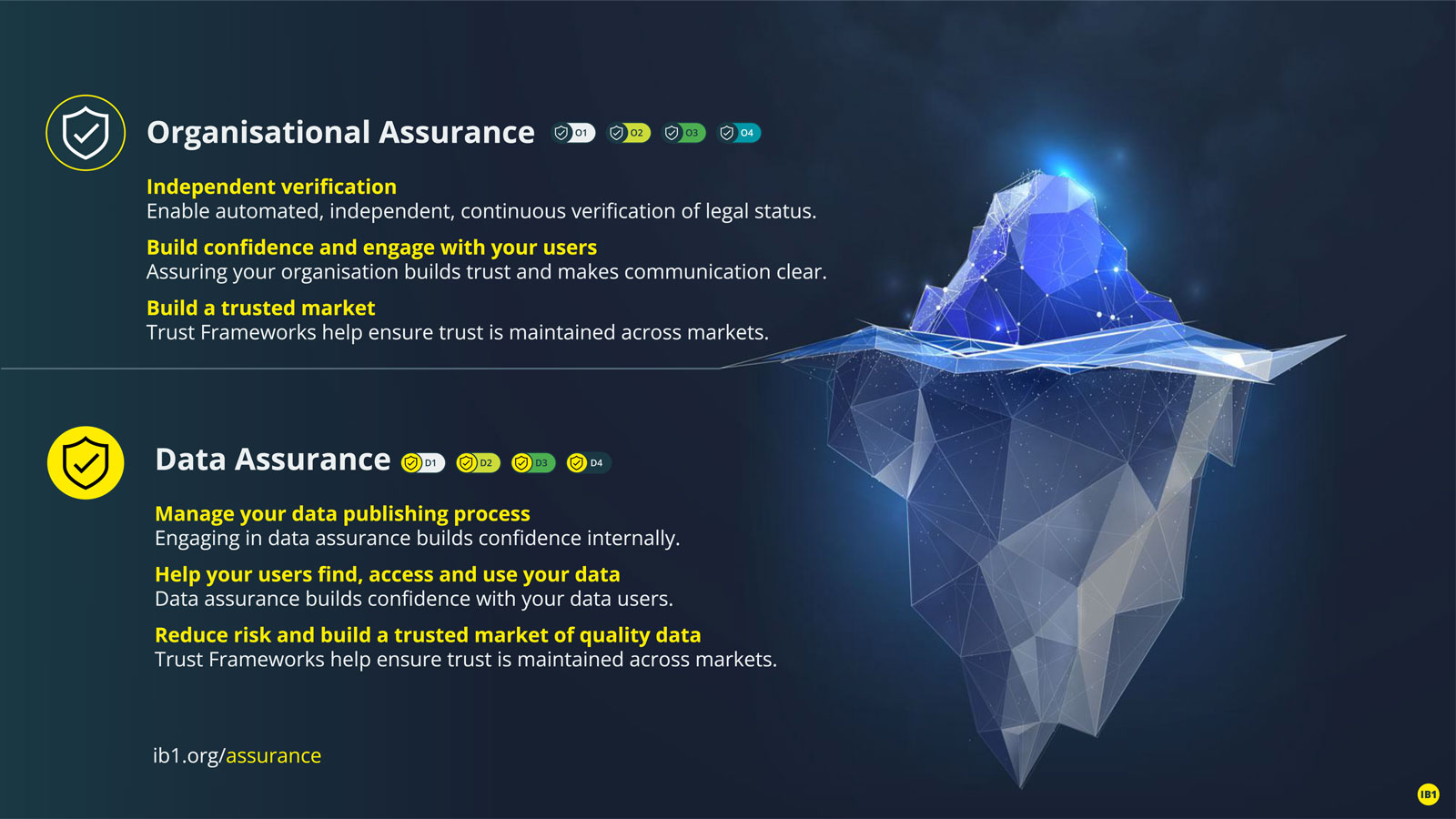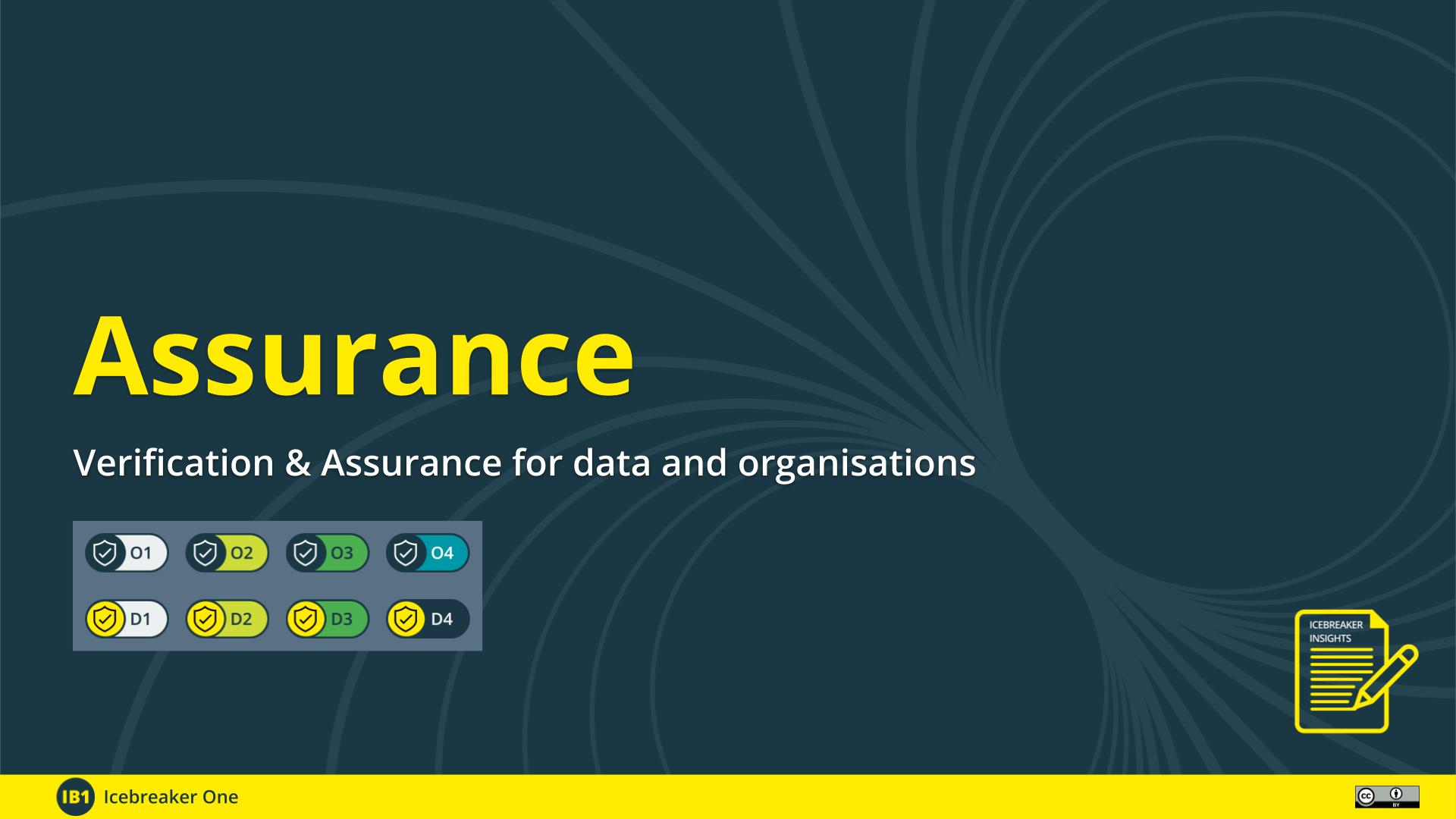Assurance gives confidence both to people inside companies that they are allowed to share data externally, as well as those externally knowing that they have permission and confidence in what is being supplied.
In collaboration with members, we have defined (and will continue to develop) clear assurance levels for organisations and their data.

Organisations are responsible for verifying that they and their data meet the assurance level requirements, including ensuring accurate and complete data. Getting your organisation and its data assured under Icebreaker One’s Assurance programme is a three-step process.
How to get assured: see our three-step guide
“Our commitment to transparency and accessibility is a significant step forward in the transition to a net zero future, and the launch of our data portal sees us making our first steps into open-data sharing, with a focus on delivering the value that can be achieved in a collaborative data exchange platform” – Michael Glass, SSEN
Learn how UK electricity distribution network operator SSEN have incorporated Icebreaker One Assurance in their data portal — read more here
Guiding principles
Icebreaker One assurance is based on three priorities to deliver data infrastructure:
1. Design for search — the foundation for discovery and access
Data must be usable by machines, not just humans. Policies must mandate that data be machine-readable so that it may be collected and used in an efficient manner. As important is the ability to discover that the data exists, what it is, where it is from, and how it may be used. This ‘metadata’ is a priority to make available so that data may be found and information about it accessed. Policies must mandate the production of meta-data that will aid discovery.
This first priority is independent of the specifics of any taxonomy, ontology or other structural design. Such designs are numerous and domain-specific.
2. Address data licensing policies — the foundation of access and usage
Licensing can determine how data may be used. To unlock the value of Priority 1, policies must mandate the publishing of licences (or usage rules) as metadata under an open licence. This is essential to enable large-scale, many-to-many discovery that data exists in a usable form.
Policies should mandate the publishing of any non-sensitive data under an Open licence (this mirrors the open-by-default policies of many countries). Policies should mandate the publishing of sensitive data using a Trust Framework.
3. Address data governance — the foundation of open markets
Data increases in value the more it is connected. A focus on systemic cohesion and interoperability reduces the burden of sharing by creating common rules and frameworks for sharing that address good data governance. It ensures data is used appropriately for the purposes intended, addressing questions of security, liability and redress. Organisations must address their own data governance and should aim toward common rules and processes to increase adoption, reduce costs and simplify interactions between data suppliers and data users.
Assurance timeline
As with all our work, Icebreaker One is co-designing assurance with its members and the public in an open manner. It has and will continue to undergo refinement based on their feedback and input.
March 2024 – Assurance embedded in Core Trust Framework and sector Trust Framework service offerings.
May 2023 – Call for input
- As part of IB1’s Trust Framework development, we announce plans to roll out a verification and assurance programme for organisations who wish to access, share and use data, and call for input into its design
June-August 2023 – Engagement and design
- Input taken from advisory groups and other stakeholders in sectors including energy, finance, water and built environment. This is combined with research on existing frameworks and assurance in other domains to develop the assurance programme design
September 2023 – Initial launch
- The initial launch of assurance is announced. Assured organisations are listed in the IB1 Registry. SSEN is the first company to include badges on its data portal, with corresponding metadata indexed in Open Net Zero.
October-December 2023 – Open consultation
- Feedback sought from Icebreaker One’s stakeholders and beyond
January-March 2024 – Review and refine
- Collate the feedback and consider assurance requirements coming from other Icebreaker One workstreams to amend the assurance programme as necessary
April 2024 – Updated assurance programme
- If amendments have been made, a programme update will be published

